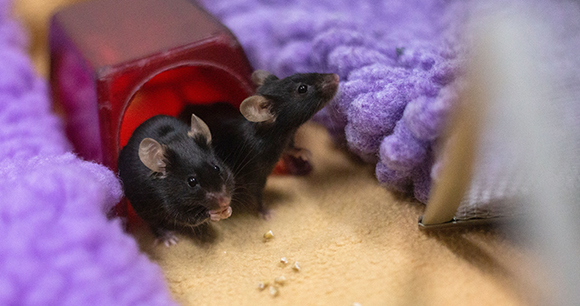
Supporting the Implementation of Existing Refinements to Improve the Welfare of Animals in Research
AWI offers grants of up to US$8,000 toward the purchase of equipment or training of staff for the purpose of refining the care, husbandry, and/or housing of animals in research to improve their welfare.
Application Deadline
- The 2023 competition is now closed. Please check back in summer 2024 for the next application deadline.
- If you would like to receive an email notification when the submission process begins each year, please send an email to [email protected]. You will be able to remove yourself from this email list at any time.
Application Requirements
- This grant is open to residents of the United States or Canada for equipment and/or training intended for use in the United States or Canada.
- Applicants must submit a completed application form, a resume/CV, and a letter of support/recommendation. Click here to preview the form.
- Grant funds may not be used for indirect costs (e.g., overhead).
Additional Information
- Grant notifications were sent in December 2023.
- Proposed refinements must be implemented within one year of receiving funds.
- Depending on the complexity of the proposed refinement and/or the applicants’ existing expertise using such equipment, AWI may choose initially to fund the purchase of a smaller amount of equipment for applicants to pilot/trial before funding the rest.
- Grant recipients must agree to submit a 250-word summary and photograph(s) describing the refinement implementation process and results. This summary may be edited for potential publication, with the recipient’s approval, in the AWI Quarterly magazine. Summaries for the 2023 grant recipients will be due no later than February 28, 2025.
- For additional information, please contact [email protected].
- Sarah Baert of the University of Guelph for establishing a positive reinforcement training program that allows rats to live in a free-range system and be caught and handled easily.
- Courtney Glavis-Bloom of the Salk Institute for Biological Studies for purchasing touchscreen computers to promote an enriching environment and measure cognitive decline in marmosets.
- Anna Jiminez and Marie-Chantal Giroux of McGill University for purchasing transparent handling tunnels as a less-stressful alternative to picking up mice by their tails.
- Kathy Lapointe of the University of Montreal for developing and implementing a physical therapy program to reduce muscle atrophy and increase psychological stimulation among cats, dogs, and horses used for teaching at the university’s veterinary school.
- Rochelle Moore of the University of Utah for purchasing a 3D printer to print custom caps that cover and protect cranial implants and surrounding tissue in rhesus macaques.
- Catherine Schuppli of the University of British Columbia for purchasing larger cages and enrichment activities for rats and mice to engage in burrowing, climbing, and exploration.